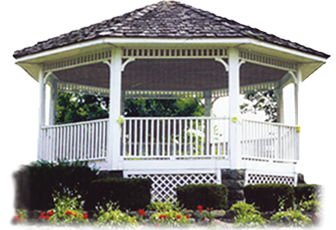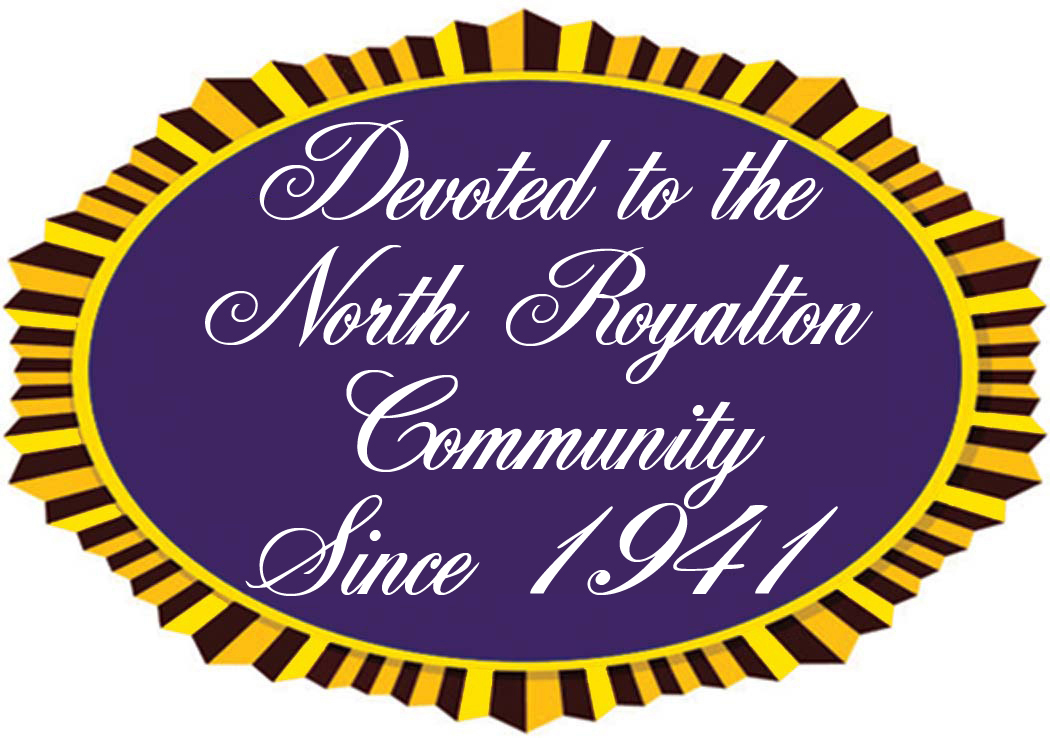This is part of a series of articles that will continue throughout the Recorder’s 75th anniversary year. The Recorder will take us through time, from the early 1940s when North Royalton was a small village and through the decades leading us to today, a modern city. We hope will like reading these stories as much as we enjoy preparing them. We hope you will share them with your friends.
Businesses in North Royalton in 1965, were doing well, the two new interstates I77, and I71 would bring more cross town traffic to area, and greater development, too. The big traffic question remained, “Could SR 82 handle the traffic?” In February, 1965, Royalton was discussing other transportation matters: Should school bus transportation be allowed for students at non-public schools? We know the answer is, yes. The buses simply get children safely to the school to receive the education that the State of Ohio mandates the children receive. Our school bus transportation routes come out every year right before school starts. They are efficient and very, very safe.
Big game hunters, Dr. and Mrs. Leonard Goss, go to India to add animals to the collection. Mrs. Goss wrote to the Recorder with her impressions of their travels. Dr. Goss, who was the Director of the Cleveland Zoo, now Metroparks Zoo, went to Bombay and Calcutta to bring back animals for the Zoo. The only shooting done was with Kodak cameras and film. Dr. and Mrs. Goss later shared their experiences with interested residents in various slide show presentations throughout the year.
In 1965, you could buy mom or grandma or other significant lady a pair of nylon stockings, a very welcome gift. Julie’s Dress Shop advertised Hane’s seamless stockings just in time for Mother’s Day. The garters needed to keep them up were considered ladies’ foundation garments or “unmentionables,” now available at Victoria’s It’s-no-secret. To get in shape, a home exercise machine was available; a spring/glide rowing machine, which could be adjusted for use by the whole family.
It really pays to advertise in the Recorder. Royalton Hardware said its sales of paint went through the roof when it advertised one free case of Coke a Cola with the purchase of each gallon of paint. A case of Coke was a rarity in most homes. A case was twenty-four 8-oz. returnable bottles in a wooden case, a little slice of Aaaaaah.
Camp Tomahawk day camp would not be able to avoid the, “plague of teenagers,” that summer. Everyone was warned. The rowdy bunch does nothing but make noise, party and leave exoskeletons everywhere. The 17-year (teenage) locusts blanket the tree branches and get tangled in the sheets and other clothing hanging on the line. They mate, die and disappear. Guess What. They’re back! We’re due for another visit this May. They will be gone before the Republicans arrive this July.
In July of 65 the Chamber of Commerce invited the Cleveland Orchestra to make North Royalton their summer home. Royalton was conveniently located between the new I77 and I71, there was land available for development, just right to nestle that cultural gem within the gently rolling hills. The orchestra opened its first season at Blossom Music Center in 1968.
Vandals laid waste to the high school just before the start of fall classes flooding halls, classrooms and especially the library. Damages were in excess of $5000. Two young adults and two juveniles were caught and charged.
In October, two church congregations looked forward and back. Royal Redeemer Lutheran Church began its fund drive for the church expansion anticipating growth throughout the coming years; groundbreaking was to be within a year. The Methodists were surprised on Sunday, October 31, by 1870 style circuit riding preachers who sang some old time hymns of praise celebrating the congregation’s 100th anniversary.
At year’s end, the Recorder noted that there were now 44 Royalton residents in the armed forces. All of them wanted to hear news from friends. Southeast Asia and Viet Nam were coming closer to home.
***
In the interest of saving money and promoting industrial development, some members of the Chamber of Commerce actually considered closing the office and cutting off the phone. Not only that, the Recorder issue of January 24, 1966, reported that they wanted to sell Memorial Park too, 20 recreational acres for industrial development. The Chamber had purchased the land with the help of donations, as a memorial to WWII dead. The park was established and dedicated to all the men who served, not to serve a few men. No decision was made to dispose of the property.
Girl Scout Week March 6 to 12 was a big celebration with 250 scouts participating in World Friendship Day held at the Christian Church. The girls made a smorgasbord of foods from many lands to share. Girls from ages eight to eighteen participated in the programs learning self-reliance, civic and social responsibility, cooperation and friendship through meetings, badge work, educational, and entertaining programs. The all-time favorite Girl Scout cookie is still the thin mints. Cookies cost 50 cents a box.
They are behind the wall and go unnoticed until they are clogged or spring a leak. The new PVC pipes for all your upgrade and plumbing needs were offered by Larsen Lumber. It pays to advertise in the Recorder, May 5, 1966.
Herb Score and Harry Jones were the Tribe’s color on WJW TV, but on the radio you were listening to Jimmy Dudley, the charismatic voice of the Cleveland Indians on WERE AM. (Garfield 1, 2-3-2-3, Garfield 1, 2-3-2-3). You could make sure that Dad would never miss an Indians or Browns game by getting him a personal, 6 transistor battery radio with black carrying case, ear bud and 9v battery included for $5.77 at Royalton Hardware. You could “borrow” Dad’s new transistor in between games to look cool listening to WIXY 1260 color radio
After the suggestion of closing the doors and turning off the phone in January, the Chamber of Commerce and Recorder moved to new accommodations at 6023 Royalton Road.
The high school football team, the Bears, had a well-rounded season. The score for each game was always 0. It was a tough year for a tough team.
***
What could the Chamber of Commerce do with Memorial Park? Memorial Park was once again the topic of January’s discussion. The Chamber tried to give the 20-acre park to the city for recreation. Eventually the need to expand the high school solved the problem. The Board of Education bought a portion of the property. Today, Memorial Park has one covered pavilion with picnic tables, tennis courts, a really good playground, a baseball field near the school, a small pond, a skate park, the new city hall and sufficient parking for business and after hours practice by frustrated student drivers and parents.
In March a special election for the school levy failed by 100 votes. Cuts were needed but no one wanted to hold the ax. The immediate cuts included: elimination of all bus transportation for the high school and no elementary bus transportation for distances under two miles. New fees were established for consumable work books and standard writing paper for grades K – 3, for all art supplies K – 12, Home Ec materials, and Shop class supplies. There would be a charge for transportation for extra-curricular activities or field trips. Staff cuts were made. Instrumental music was the first program to go.
The Recorder of May 25 had a letter from Pfc. R. E. Jacobs, A company, 1st BN, 9th USMC, near Dong Ha. Roger (R. E.) relating the action near Dong Ha. His group was caught in the crossfire and had been pinned down. He described seeing his best friend take a direct hit from a shell and, when able to go back to the area, only bone fragments were found. Being raised Methodist, Roger was concerned about the barbaric things he might have to do. He wrote, “(I) wish people knew the real story of war over here. You just can’t tell them. First, they wouldn’t believe you. Second, there are things you cannot tell.” Still he appreciated the news and things sent from home and from the Church. The June 15 issue reported that Roger had been wounded in action and was in the hospital.
In August, the Red Cross was advertising in the help wanted section. More people were needed to serve the Military build-up in Viet Nam. Men were wanted overseas and women for state side. All personnel would work in Military hospitals as recreation aides and other duties. Pay started at $4,850.
The announcement in September read that Mayor Lester Edgerton would not run for reelection. Mayor Edgerton was elected to council in 1927 and became mayor in ’29. During that time the population grew from just under 1,400 to 11,700; his pay grew too. Early on, being mayor was considered a part time job that paid less than $50 a month. To supplement his income he worked at Searles-Bassett Funeral Home for fourteen years. Mayor Edgerton’s departure left a void in the political scene. Five candidates ran for mayor that year; and, for the first time a lady, Judith Sagen, ran in a field of ten for four city council seats.
In the October 19 issue the section called Recorder Reconnaissance urged everyone that was sending letters or packages to service men and women to get them in the mail pronto, in time for Christmas delivery. The Reconnaissance listed 87 servicemen; more than double the list two years earlier.
In the November election the school levy passed. Judith Sagen did not win a seat on the four member council. Leonard Hlavin won the mayor’s seat in a run-off election against council member, Edward Kmet, December 5.
The Rev. Ralph E. Dessem, Pastor of North Royalton Methodist Church, wrote about his visit to Philadelphia with a stop at Independence Hall, the place where the Constitution was written and debated. In 1787, after months of wrangling and debate, the delegates were getting nowhere. Benjamin Franklin said: “How has it happened…that we have not hither-to once thought of humbly applying to the Father of Lights to illuminate our understanding? … We have been assured in Sacred Writings, ‘except the Lord build the house, they labour in vain that build it.’” Franklin then proposed that “prayers be held in this assembly every morning before we proceed to business; and that one or more of the clergy of this city (Philadelphia) be requested to officiate in that service.” The motion passed; the Constitution was established September 17, 1787. Rev. Dessem enjoined us all, “At a time such as this, when the future of our nation and the world is uncertain, let us take time to pray.” Pray for our nation, the world and each other. Pastor’s Corner, October 11, 1965. p. 20.
By LINDA KWARCIANY
Contributing Writer














